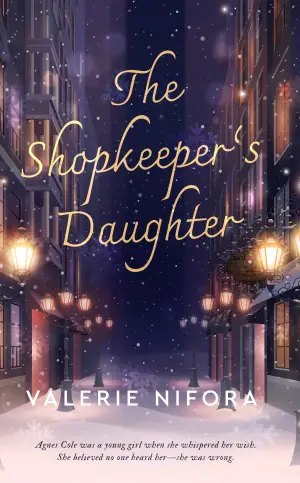I recently dove into Kate Quinn’s gripping historical novel, The Alice Network, and I must say, it was an experience that resonated deeply with me. I’m always drawn to stories that intertwine strong female characters with historical events, and this book delivers on both fronts. The dual narratives of Charlie St. Clair, a young American searching for her missing cousin in post-World War II Europe, and Eve Gardiner, a seasoned spy from World War I, are masterfully woven together in a tale brimming with courage, redemption, and the scars of war.
The story kicks off in 1947, with Charlie facing an unplanned pregnancy and the threat of being disowned by her family. This setup instantly grabbed my attention because it lays the groundwork for a journey defined by resilience and defiance. I found myself fervently rooting for her as she navigates the turbulent waters of societal expectations to uncover the truth about her cousin, Rose, who vanished during the Nazi occupation of France.
In parallel, Eve’s experiences as a spy during World War I are thrilling yet heart-wrenching. Her transformation from a spirited young woman yearning to fight for her country to a troubled soul burdened by her past exemplifies the deeply personal cost of war. The author skillfully captures the inner turmoil of Eve’s character, making her journey just as compelling as Charlie’s.
One of the book’s standout aspects is its exploration of gender dynamics. As noted by Glenn Anaiscourt, the novel explores the systemic limitations women faced, with characters voicing their frustrations about societal expectations. It’s a powerful reminder of how far we’ve come, yet how relevant those struggles still are. The dialogue between characters feels authentic and allows readers to reflect on the ongoing challenges that women continue to face today.
However, while the dual narratives are engaging, there are moments—particularly at the beginning—where I felt the pacing dragged a bit. Some passages delved into detail that, while richly woven, occasionally slowed the momentum. It’s a mixed bag; some readers might appreciate the depth, but others may find the slower sections less enticing.
Another point worth mentioning is that characters sometimes reflected modern sensibilities and behaviors that felt slightly out of place for the historical context. For example, some exchanges felt as though they were more reflective of contemporary dialogue rather than that of women in the early to mid-1900s. This, I discovered, was a common critique among readers, but it didn’t detract too much from my overall enjoyment.
Quinn’s writing is evocative, and her meticulous research is evident throughout the book. It seamlessly integrates historical events, enriching the narrative tapestry while educating the reader about the real-life Alice Network. I found myself diving into research about the women spies of that era, making the experience feel incredibly immersive. I even found myself reflecting on the massive implications of war revealed within this historical context, a theme that Moira Bee picked up on when highlighting the poignant real-life events intertwined with the characters’ stories.
The Alice Network ultimately captivated me with its themes of resilience and friendship. The bond that forms between Charlie and Eve is one of the highlights of the novel. Their development from strangers to allies and, ultimately, a form of family is beautifully depicted and left a lasting impression. It perfectly encapsulates how sometimes the most profound connections are born from shared pain and purpose.
In conclusion, I wholeheartedly recommend The Alice Network for anyone who enjoys historical fiction enriched with complex, relatable characters. Despite a few pacing issues and occasional modern sensibilities, this novel is a powerful exploration of women’s strength amid adversity. Kate Quinn has crafted a story that is both educational and emotionally resonant, making it a compelling read. Whether you’re a fan of history, espionage, or simply love a good story about female empowerment, you won’t want to miss this remarkable novel.
Discover the intriguing world of espionage and female resilience in The Alice Network: A Novel. >>








